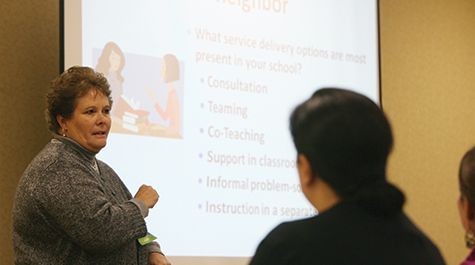20 Years Meeting the Needs of Students with Disabilities
Tucked away on the third floor of the School of Education building is a small but mighty team of experts in special education. This cadre of master teachers works to help schools and families of students with mild and moderate disabilities throughout eastern Virginia. On any given day, these passionate educators might be collaborating with a school team to evaluate their current practices, coaching a teacher as she develops a struggling learner’s reading skills, helping co-teachers plan lessons that reach all of the kids in their classes, or facilitating a team meeting about classroom behavior management.
They also develop and compile online resources, newsletters, modules and workshops to give teachers and families a one-stop shop for information and strategies to help their students succeed.
These are the specialists of W&M’s Training and Technical Assistance Center (T/TAC), which celebrates its 20th year of service to Virginia this year. Part of a statewide system of centers, T/TAC W&M serves superintendents’ regions 2 and 3, specifically providing support to schools in those regions which are struggling to meet achievement standards in relation to students with disabilities.
As one teacher shared, “Thanks to T/TAC, I believe I am well on my way to providing what I consider to be a radically different approach to helping students see themselves as successful readers and writers.”
For Lori Korinek, professor of special education and principal investigator, and Debbie Grosser, director of the center, the success of T/TAC is directly tied to the success of the students and educators they aim to help. “There’s no one-size-fits-all solution, so we work with each school to tailor our services to meet their needs,” says Korinek. “We’re looking to empower them to make the changes needed to improve outcomes and offer a better education to their exceptional students.”
